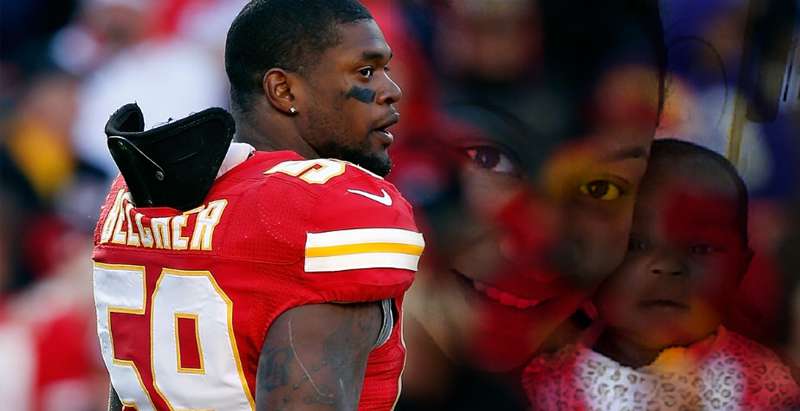At 6’2” and 228 pounds, Kansas City Chiefs’ linebacker Jovan Belcher was a formidable opponent. In the NFL, his body became a weapon on the football field. Before becoming a professional football player, Belcher had excelled as an all-American wrestler.
Did Kasandra Perkins have a chance against an NFL linebacker’s murderous rage? Certainly not while unarmed.
Had she wielded a gun, the answer could have been different. Guns make women safer.
Guns are the great equalizer for women facing threat of murder, rape, physical attack or robbery. Opponents of the Second Amendment do not like to admit that.
They also deny that causation is difficult to reduce to one single thing. Consider the facts:
1. Belcher and Perkins had just had a child together out of wedlock, leading to elevated stress and depression.
2. By definition, unmarried new parents know that the permanence of their relationship is uncertain.
3. Compared to married couples, those who cohabit experience significantly higher rates of child abuse, domestic violence and breakup.
4. Belcher reportedly spent the previous night on an alcohol binge with another woman.
5. He repeatedly abused drugs, according to other reports.
6. Like many sports leagues, professional and otherwise, the NFL is no stranger to violent and aggressive behaviors. This is no surprise when you consider that the players have spent most of their lives cultivating the skill of deploying violence and aggression.
So, in light of all this evidence, what did Bob Costas conclude about Belcher’s acts of murder and suicide?
When Costas took to the airwaves with his commentary, did he blame out-of-wedlock childbirth? Did he blame the demise of marriage? Did he blame cohabitation or domestic violence?
Did he blame alcohol? Did he blame illegal drugs? Did he blame NFL culture or the game itself?
Indeed not. “If Jovan Belcher didn’t possess a gun, he and Kasandra Perkins would both be alive today,” Costas said, quoting from an editorial.
In analyzing this dreadful tragedy, Costas committed the logical fallacy of Post hoc ergo propter hoc (“After this, therefore because of this”). Correlation does not prove causation any more than the rooster’s crowing causes the sun to rise.
Worse still, Costas selected from a complex and interrelated chain of causation one particular fact as the necessary and proximate cause of the tragic outcome.
Handguns, said Costas, “exacerbate our flaws, tempt us to escalate arguments, and bait us into embracing confrontation rather than avoiding it.”
Just like alcohol. Ditto illegal drug use.
Did football have something to do with Belcher’s murder-suicide? “Who knows?” said Costas, suddenly agnostic about the fine-grained distinctions of causation.
But he takes it on faith that Belcher’s handgun was causally necessary for the murder-suicide. But for Belcher’s gun, he and Perkins would both be alive today, according to Costas.
Murderous athletes can easily accomplish their ends without firearms. If you don’t believe this, look no further than the fatal injuries to Nicole Brown Simpson and UVA lacrosse player Yeardley Love.
Do mainstream media pundits really care about the real causes, or do they just want to promote their liberal agenda? How else does Jason Whitlock get from Jovan Belcher to “the NRA is the new KKK”?
Imagine that the real reasons for this crime were conclusively shown to involve a complex interplay of factors including drug and alcohol abuse, domestic abuse, sexual competition and a lack of a healthy marriage relationship. In that case, is there any doubt that liberal elites would suddenly lose interest in the admissibility of causation? “Move along, folks, nothing to see here.”
Unarmed, Kasandra Perkins had no chance against Jovan Belcher’s homicidal fury. Sadly, liberal pundits lash out against the Second Amendment rather than seeking to address the problems that truly caused Perkins’ heartbreaking death.
First published on the Daily Caller in December 2012








